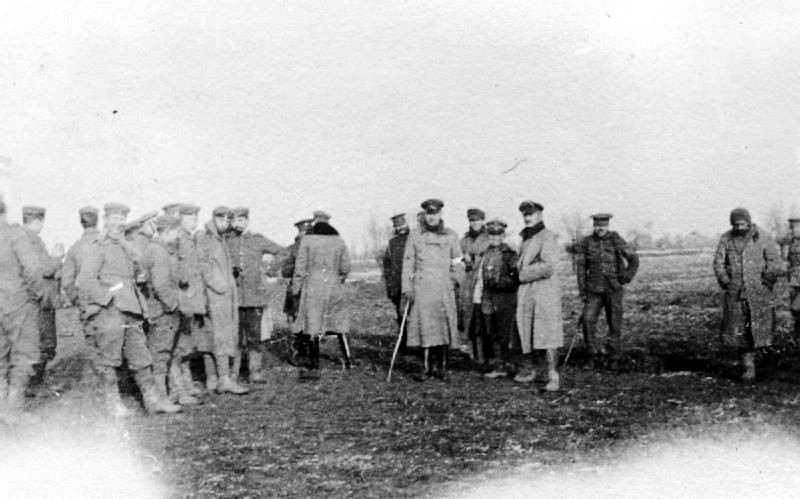Imagine being cold, wet, knee-deep in the mud along a trench filled with every atrocity of war. For months you have fought in trenches that have accounted for over 4 million dead and wounded. The constant bombardment from artillery and machine guns has left the area between the lines littered with tree stumps, tangles of barbed wire, and the graves of men who died trying to cross this “no man’s land”.
Disclosure: Some links on our site are affiliate links. If you purchase a linked item, we will make a commission, at no extra charge to you.
But then, from across this wasteland of man’s inhumanity toward man, you hear singing. Although sung in a different language, they are unmistakenly familiar. Christmas carols! It’s Christmas Eve, 1914. And for this small portion of the western front, enemies are not enemies. They are fellow men.
But why are they singing? Is it a trap? Something to lure men from cover to attack? Imagine the courage it took for that first man to take a chance and raise his head above the parapet and peer out into that unforgiving stretch of land. First one. Then more. As soldiers from both sides spontaneously leave their trenches to meet in No Man’s Land.
In what would come to be known as The Christmas truce, hundreds if not thousands of warring troops lay down their weapons and spend Christmas Eve and Christmas Day together in the middle of one of the bloodiest wars in history.
Soldiers exchanged British bread for German sausages. German pipes for British cigarettes. Wine, beer, schnapps, and rum flow freely between the men. There are rumors of soccer games taking place, too.
On Christmas Eve, some of the lower-ranking British Officers told their men not to fire unless fired upon. In what was called “live and let live”, these orders were not authorized by higher levels of command. On Christmas morning, German soldiers started emerging from their trenches and waving their arms to demonstrate they had no ill intent. When British soldiers saw they were not carrying weapons, they soon joined them.
Higher Command on both sides of the conflict were understandably against this fraternization between enemies. And each took steps to quell these spontaneous cease-fires and friendly exchanges. But before letters were censored and stories hushed, many soldiers wrote home telling of this monumental event. These letters stress that even the men themselves couldn’t believe what was transpiring around them. Nor would they recognize the historic significance. And these letters seem to be the most accurate telling of the Christmas Truce, too.
French author Michel Corday wrote:
“January 5th, 1915. I have before me a letter from a soldier, in which he swears, by all that he holds dear, that on the 24th of December two regiments in the opposing lines put aside their arms, in defiance of their officers, and fraternized between the trenches. The soldiers exchanged cigars, shook hands, and walked about arm in arm. The Germans promised not to fire that night or the following day. They kept their word. That seemed to me symbolic – it marks a humane spirit far superior to the war.”
In some areas, food and drink were shared between the armies. Others played games of soccer. But it wasn’t all frivolity as some used the truce as a time to bury their dead and improve their trench defenses. Because I’m sure everyone knew this peace would not and could not last.
And after a couple of days, in some places lasting until after New Year, the battles raged on. There would not be any other widespread ceasefires until the armistice in 1918. But for a couple of days at Christmas in 1914, in one of the bloodiest wars in history, enemies laid down their arms and came together to shake hands, share food, and treat each other not as enemies, but as friends.

